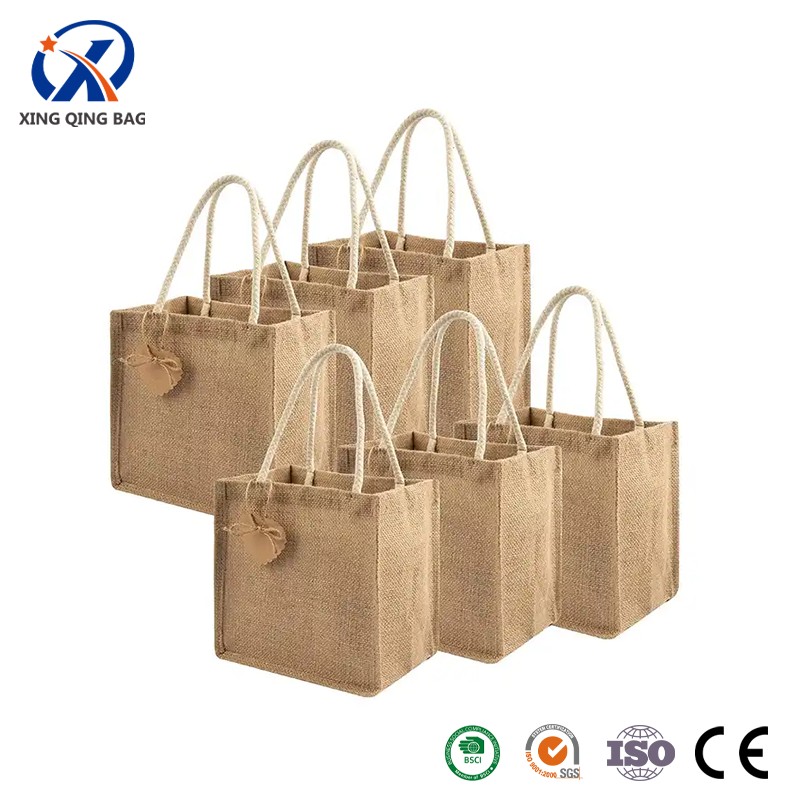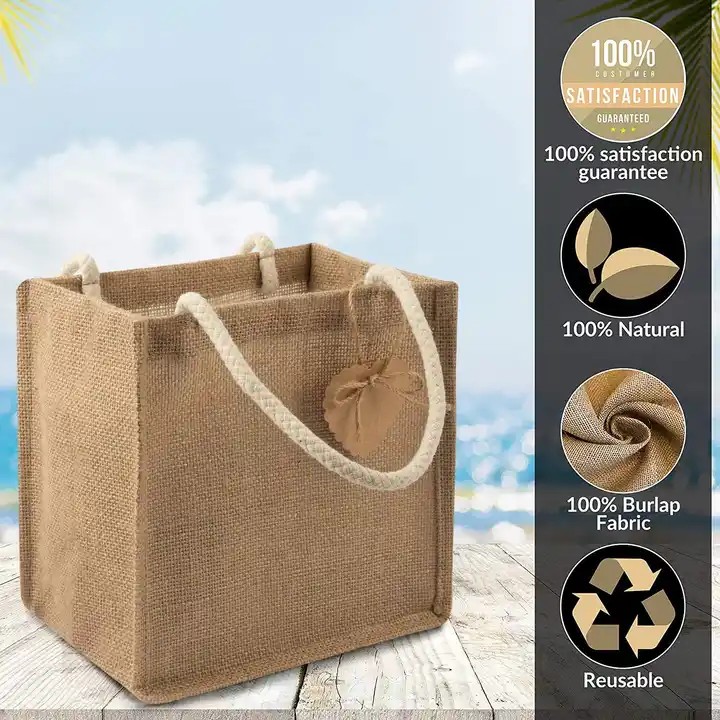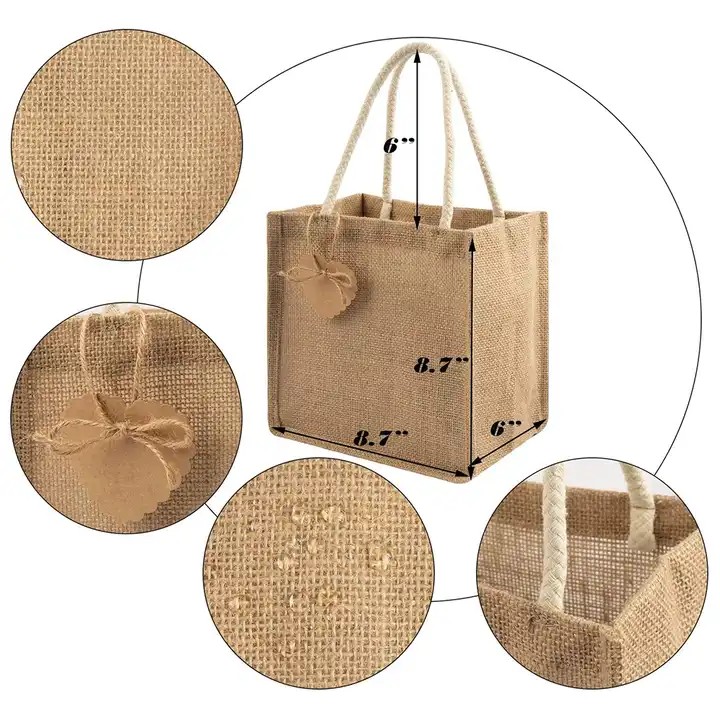How do sustainability, market growth, and emerging trends intersect within the jute tote bag industry?
2025-03-21
The jute tote bag industry is experiencing significant growth in 2025, driven by rising global demand for eco-friendly alternatives. The global bag and luggage market is projected to reach hundreds of billions of dollars by 2025, with China leading as the largest consumer market, contributing nearly 60% of the share—equivalent to over $60 billion. E-commerce channels, particularly cross-border platforms, are fueling this expansion, as online sales of jute bags surge due to their versatility and sustainability appeal.
Consumers increasingly prioritize functional and environmentally conscious products, with jute totes gaining traction for their durability and natural aesthetic. Market trends show a preference for oversized, commuter-friendly designs in neutral tones, aligning with the "athleisure" and retro revival trends. For instance, sales of oversized jute totes with reinforced handles have grown by 40% year-over-year, catering to urban shoppers seeking practicality without compromising style.
Innovation and Sustainability Challenges
Technological integration is reshaping the industry. Smart jute bags with features like GPS tracking and Bluetooth connectivity are emerging, though their market penetration remains niche. Meanwhile, advancements in material science have led to hybrid designs, such as laminated jute blended with water-resistant coatings, addressing durability concerns while retaining eco-credentials.
However, the sustainability narrative faces scrutiny. A 2008 UK Environmental Agency study found that cotton tote bags must be reused 327 times to offset their carbon footprint, compared to plastic bags. While jute—a biodegradable, low-pesticide crop—fares better, brands are urged to avoid "greenwashing" by transparently communicating certifications like the Global Organic Textile Standard (GOTS).

Regulatory Pressures and Supply Chain Shifts
Stringent policies such as the EU’s Sustainable Products Initiative are compelling manufacturers to adopt transparent carbon accounting. This has accelerated investments in circular economy models, including take-back programs and rental services, which are expected to exceed $5 billion in revenue by 2025.
Supply chains are adapting to these changes. Automation technologies like 3D printing and AI-driven design tools are reducing material waste by up to 25%, while digital platforms enable on-demand customization, minimizing overproduction.
Emerging Markets and Brand Strategies
The industry is witnessing a surge in collaborations between luxury brands and eco-conscious startups. For example, a recent limited-edition jute tote co-branded with a sustainability influencer sold out within 72 hours, fetching a 20% premium. Z-generation shoppers are driving demand for personalized designs, with 65% of 18–24-year-olds preferring custom-printed jute bags over generic options.
In emerging markets, Southeast Asian manufacturers are leveraging cost advantages to produce mid-range jute bags for export, while African markets are seeing a rise in locally sourced jute products, supported by EU trade incentives.

Future Outlook
By 2030, jute tote bags are poised to dominate the reusable shopping bag segment, with innovations like biodegradable dyes and modular designs enhancing their lifecycle. Retailers are also integrating blockchain for traceability, assuring consumers of ethical sourcing.
As the industry balances growth with accountability, jute totes are no longer just a trendy accessory—they’re a litmus test for brands’ commitment to planetary health.
This report synthesizes insights from industry analyses, market data, and sustainability certifications to provide a comprehensive view of the jute tote bag sector in 2025.





